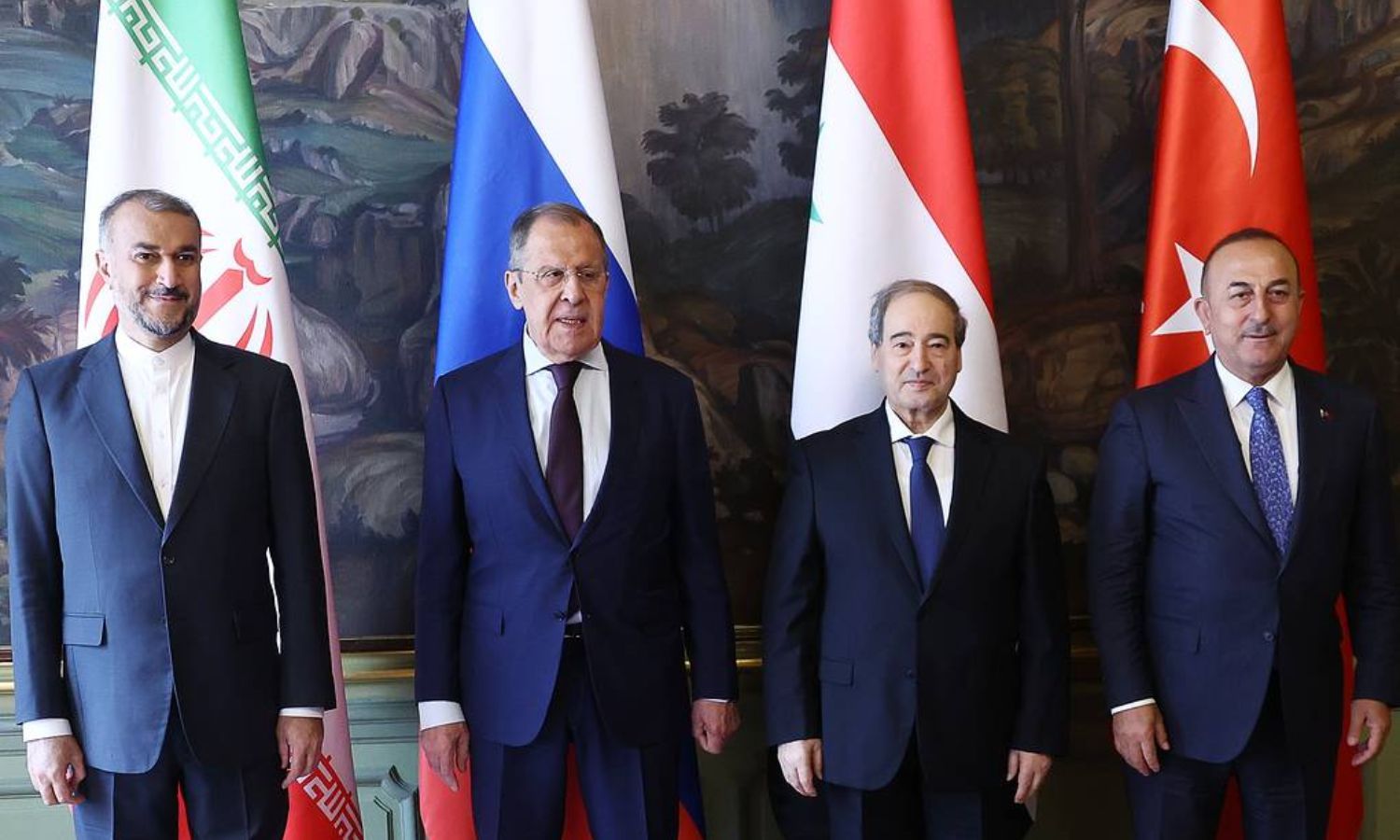



The Russian President’s Special Envoy to Syria, Alexander Lavrentiev, announced that the matter of normalizing relations between the Syrian regime and Turkey collapsed at the end of the year 2023.
Lavrentiev explained that the rapprochement path somewhat came to a halt at the end of last autumn because the Syrian side felt it necessary to obtain assurances from the Turkish side that the Turkish military forces present in Syria would withdraw “in the long term”.
The Russian news agency “TASS” reported on Monday evening, January 29, from the Russian official that “no one says these military forces will be withdrawn in the near future”, yet this is unacceptable for Ankara for certain reasons.
Lavrentiev said, “Although I believe such statements were issued unofficially and at different levels by the Turkish side, and that they will not stay in Syria, sooner or later Turkey will withdraw its forces once the appropriate conditions are met.”
Lavrentiev considered that Ankara does not want to make this path official, which constitutes a significant obstacle for Damascus, because the people will not understand the actions of their government that would negotiate with a country that “occupies” part of Syrian territory almost twice the size of Lebanon.
He also regarded the issue of Turkish normalization with Damascus as still at the forefront of the Russian approach to Syria, with the belief that this issue is important and needs to make progress.
Despite the 20th round of the political process witnessing a meeting between the quadrilateral parties (Turkey, Russia, Iran, and the Syrian regime) related to the Turkish rapprochement with Damascus, the 21st round, which took place in Astana a few days ago, did not follow the footsteps of its predecessor, amid cooling in this path that halted at this juncture.
Moreover, the Turkish delegation, led by Deputy Foreign Minister Ahmet Yıldız, did not meet with the Syrian regime’s delegation, settling instead for a meeting with the Syrian opposition delegation.
On December 28, 2022, the Turkish rapprochement with the Syrian regime began without announced preliminaries, opening the door to consecutive meetings aimed at achieving a meeting between Turkish President Recep Tayyip Erdoğan and Syrian regime President Bashar al-Assad at the same table.
This has not yet been achieved, despite Russian mediation efforts initially, and Iran entering into the negotiations secondarily.
Although after the Turkish presidential elections (May 28, 2023) the meetings were limited to one encounter, Russian attempts to breathe life into this process continued.
Russian Deputy Foreign Minister Mikhail Bogdanov clarified on September 20 of the same year (about three months after the most recent and current meetings of the rapprochement path) that Moscow is working on improving a roadmap regarding relations between Ankara and Damascus.
if you think the article contain wrong information or you have additional details Send Correction